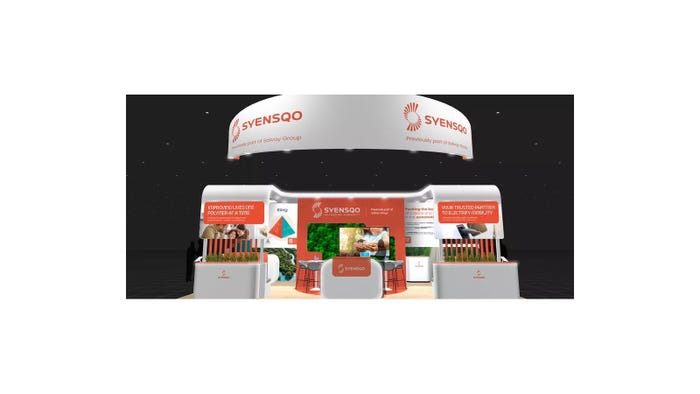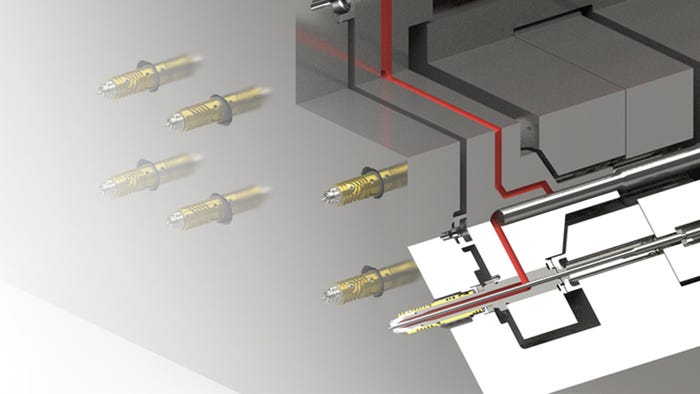
Optimising plastic moulding with temperature control technologies - plastic inje
Author:gly Date: 2024-09-30
Last, but not least, the quality of the after-sales service including the possibility of using an online service also play an important part in the purchasing decision according to Klaus Großtesner. In the acquisition of robots, easy programmability is a top priority in addition to all other criteria which are also applicable to the machines.
Joh. Fuchs & Sohn – FUSO – was established in 1947 in Waidhofen on the river Ybbs in Lower Austria. In 1964, it started off into plastic injection moulding by producing the orange-coloured lids for Ovomaltine cans.
“The Insider cells based on the servo-hydraulic SmartPower and WITTMANN linear robots meet our requirements in every respect”, Maximilian Högn confirms. “The equipment is space-saving, highly energy-efficient, easily accessible and easy to operate.”
The HiQ Flow assistance system is an injection regulation function by which viscosity fluctuations in the material used can be compensated. This function enables automatic process automation and compensates even minimal fluctuations in the material quality. FUSO is so completely satisfied with this system that all of the company’s other machines have been retrofitted with it, too, wherever technically feasible and economically advisable.
The family-owned company managed by its CEO Maximilian Högn and its CSO Klaus Großtesner makes highly sophisticated plastic parts from a great variety of materials, including high-temperature plastics, for many different sectors of industry, with about 80 workers on a production floor of just under 3,000 m².
To make all these parts, a number of injection moulding machines ranging from 450 to 5,200 kN in clamping force are in operation, 17 of which have come from WITTMANN BATTENFELD. Moreover, FUSO is also a long-standing customer of the WITTMANN Group for automation equipment, using more than 40 handling devices with load capacities from 5 to 30 kg, including No. 7 robots as well as latest No. 9 series models with R9 control systems.
Requirements from the customer base concerning quality standards and attributes of the parts in terms of tolerances, outward appearance and materials used are constantly becoming more and more stringent. FUSO scores with purchasers by its extensive technical know-how and many years of experience in making high-quality parts and assemblies. This wealth of expertise enables the company to offer top-quality solutions which are both sustainable and cost-efficient. FUSO also stands out on the market by its high supply availability and reliability towards its customers.
All SmartPower machines except one are designed as Insider cells, which means that they come with a WITTMANN robot and a conveyor belt integrated in the production cell. This variant offers a number of advantages, ranging from an enormous amount of space saved compared to systems with conventional automation solutions, all the way to cost advantages from the fact that all hazardous areas are already secured and certified ex works. Moreover, the robot cycle time can be minimised due to shorter travel distances and direct parts depositing on the conveyor belt.
At the upcoming Fakuma trade show in Friedrichshafen (Germany), Swiss injection molding machine manufacturer Netstal will be presenting what the company says is a “world first”: injection compression molding on a stack mold. Netstal will be demonstrating the new technology at its booth in hall A7 (7303/7304), where a 15oz (425g) margarine tub made from PP and weighing only 10.7 g will be molded on a hybrid Elion injection press equipped with a four-by-four stack mold.
Moreover, using a stack mold significantly increase productivity, while the technology reduces material costs by up to 20%, in addition to providing total flexibility in terms of shape, appearance and decoration of the manufactured part.
The items produced range from micro parts weighing just 0.03 g right up to large parts weighing 2 kg. In addition to manufacturing complex plastic parts by 1- or 2-component injection moulding, the company offers insert moulding for functional parts, mounting of complete assemblies, as well as gluing and welding, plus decoration by 4-colour pad printing and laser printing, and 3D scanning for reverse engineering.

The cooperation between FUSO and WITTMANN BATTENFELD has already been in existence for four decades. The machines most recently supplied by WITTMANN BATTENFELD are exclusively models from the SmartPower series. The machines from the SmartPower series are hydraulic machines equipped with fast-responding servo motors and powerful constant displacement pumps. This technology, combined with the KERS (Kinetic Energy Recovery System) to recover the deceleration energy within the machine, which is included as standard, provides the SmartPower’s high level of energy efficiency. Further characteristics of the SmartPower are its small footprint and its pivotable injection unit, which ensures easy access to the barrel for quick and comfortable barrel change.
3D prints for rapid prototyping are also possible. Injection moulding tools and automation systems are planned, designed and manufactured in-house at the company’s own mould-making shop. For ecological purposes, the company has made a special point of installing tool-friendly cooling water systems. Further evidence of FUSO’s commitment to protecting the environment are waste heat utilisation and a photovoltaic system.
From the left: Martin Stammhammer, Int. sales manager Robots, WITTMANN Technology, Maximilian Högn, CEO of FUSO, Klaus Großtesner, CSO of FUSO, Andreas Högn, majority shareholder and advisor, FUSO, Roland Pechtl, area sales manager WITTMANN BATTENFELD
With the rising demands from customers on the parts and assemblies produced, FUSO’s own demands on the injection moulding equipment used are also increasing. The company’s machinery is state-of-the-art, with a high level of automation on its production floor. All systems are fitted with matching robots to ensure careful parts handling.
In addition to a good price-performance ratio, FUSO requires from injection moulding machines above all stability, as well as easy access for servicing and cleaning, a smooth, easy-to-clean surface, user-friendliness in operation and a high standard of repeatability. Other factors gaining increasingly in significance are the machines’ energy efficiency, their networkability with robots and auxiliaries and availability of assistance systems.
The company makes a point of supplying technical plastic parts and assemblies to a solid, mixed industrial customer base. The various sectors served by FUSO include the automotive and railway industries, as well as consumer goods, electronics, medical technology, building construction, telecommunication, mechanical engineering and renewable energy generation.

The machines delivered in 2023 also come already equipped with the new B8X control system and the HiQ Flow assistance system. The B8X control system includes several control components developed in-house. These allow a higher internal clock frequency with shorter response times to sensor signals and consequently a higher standard of parts reproducibility, with user-friendliness and familiar visualisation remaining unchanged.

At the upcoming Fakuma trade show in Friedrichshafen (Germany), Swiss injection molding machine manufacturer Netstal will be presenting what the company says is a “world firstâ€: injection compression molding on a stack mold. Netstal will be demonstrating the new technology at its booth in hall A7 (7303/7304), where a 15oz (425g) margarine tub made from PP and weighing only 10.7 g will be molded on a hybrid Elion injection press equipped with a four-by-four stack mold.The innovative technology is the result of a collaboration between mold manufacturer Plastisud, automation specialist Machines Pagès and Netstal. While the stack mold with 4+4 cavities is impressive enough, turning out standard-sized margarine with IML decoration in a cycle time of five seconds, the truly revolutionary aspect of the whole process is hidden from view, according to Markus Dal Pian, Vice President, Sales & Marketing at Netstal.“The polypropylene packaging is not injection molded but manufactured in an injection compression molding process," he explained. "This combination of injection compression molding and stack mold is a complete novelty in the industrial production of packaging."The cavities are partially filled in only 100 ms with extremely even results and the process is performed at a low pressure to prevent tension in the material. The high quality of the platen parallelism guarantees a synchronicity of 99.98 % between the mold, machine and automation system.The stack mold, especially adapted to the requirements of the new production process, was developed in a few short months by Plastisud. The unique injection compression molding technology guarantees perfectly balanced parting planes with an extremely low dispersion rate."The special design of the stack mold developed by Plastisud plays a key role in this application,†Thomas Iten, PAC Application Engineer at Netstal emphasized. Machines Pagès provided specific know-how in the area of handling systems for in-mold labeling (IML) to ensure that the automation process has been adapted perfectly to the machine and mold.According to Iten, this configuration, in which the injection compression molding process is combined with a specially balanced stack mold, is “a genuine innovative leap." The fundamental benefits of injection compression molding include narrow wall thicknesses and a lighter product resulting in lower unit costs. Furthermore, the end product (lids in particular) shows fewer signs of distortion and has a greater dimensional accuracy due to the lower stresses placed on the material.
GETTING A QUOTE WITH LK-MOULD IS FREE AND SIMPLE.
FIND MORE OF OUR SERVICES:


Plastic Molding

Rapid Prototyping

Pressure Die Casting

Parts Assembly



